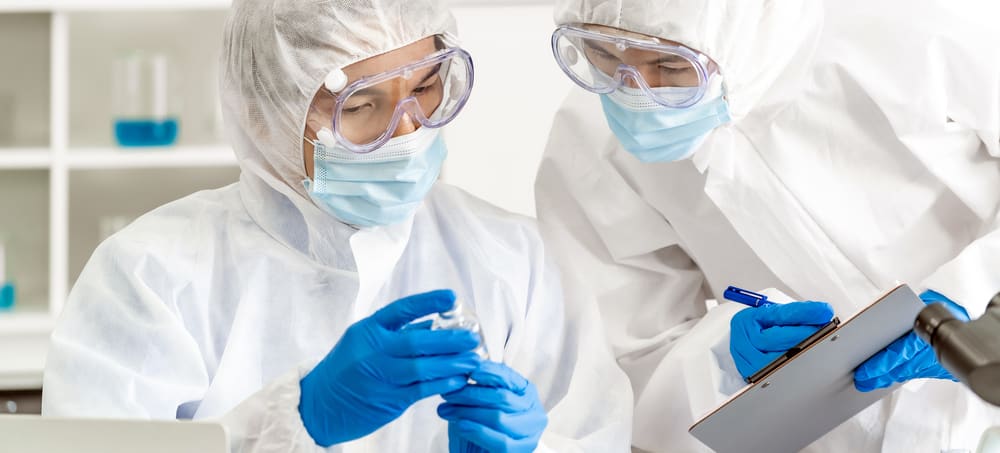As communities strive to prevent the spread of SARS-CoV-2, the virus that causes COVID-19, the United Kingdom is funding research trials that will deliberately infect healthy young volunteers with the coronavirus. With these COVID-19 challenge trials, the government hopes to accelerate the development of safe, effective vaccines. However, the strategy is controversial. Researchers must weigh the possible benefits of the research with the risks of infecting volunteers.
The UK’s Human Challenge Programme
Known as the Human Challenge Programme, the studies will begin in January if they are approved by regulators and an ethics committee. The British government will invest 33.6 million pounds ($43.5 million) in the research, partnering with Imperial College London, Royal Free London NHS Foundation Trust, and contract virology research company hVIVO. The virus used in the trials will be manufactured at Great Ormond Street Hospital in London.
The researchers’ initial goal is to discover the smallest amount of the SARS-CoV-2 it takes to infect healthy young people with COVID-19. They will recruit up to 90 volunteers to participate in the trials, all between the ages of 18 and 30 (the age group with the lowest risk of harm). The volunteers must have no known risk factors for COVID-19 (such as heart disease, diabetes, or obesity) and no prior history of COVID-19 infection. After being exposed to COVID-19, the volunteers must stay in a biosecure facility until they are no longer infectious. The research team has emphasized that volunteer safety will be the top priority.
As soon as they are infected, the volunteers will be treated with the Gilead antiviral drug remdesivir. Although Dr. Chris Chiu, the lead researcher, admitted that remdesivir has shown little or no effect on severe cases of COVID-19, he stated that his team has a “strong belief” that remdesivir will effectively treat volunteers if it is administered at the earliest stages of infection.
The Ethics of Human COVID-19 Challenge Trials
Although human challenge trials have provided valuable insight into infectious diseases, including malaria and influenza, they also present a number of ethical issues. Are the possible benefits of human challenge trials worth the risks to participants? Can they be run in a safe and ethical manner? How do the risks to participants compare to the risks of delaying a treatment or vaccine?
Advocates of the Human Challenge Programme argue that the potential to quickly identify a safe, effective COVID-19 vaccine outweighs the minor risks to volunteers. The trials would provide a faster way to test vaccines, as researchers wouldn’t need to wait for people to be exposed to the coronavirus naturally. Dr. Chiu said, “Human challenge studies can increase our understanding of COVID-19 in unique ways and accelerate development of the many potential new COVID-19 treatments and vaccines.”
Some critics of the trials believe it is unethical to deliberately infect people with a potentially life-threatening disease that currently has no effective treatment. This course of action only makes sense, some say, if the likelihood of a person being naturally infected with the virus is low and would delay the results of vaccine trials – which is not true in the UK, where case numbers are currently rising. In addition, large-scale vaccine studies with tens of thousands of participants are expected to deliver results soon, causing many to question the value of the Human Challenge Programme.
Clearly there are many considerations involved regarding ethics, safety, and value. According to a spokeswoman for the World Health Organization, if the study moves forward, it is critical that the research is overseen by an ethics committee, that volunteers have full consent, and that researchers minimize risk by selecting the right volunteers.
Preliminary work for the UK’s COVID-19 challenge trials is currently being conducted by hVIVO. If the study is given the green light and proceeds as expected, researchers expect to have results by May 2021.
Are you looking for a CRO to assist with your preclinical or clinical drug development related to the novel coronavirus or COVID-19? QPS has CLIA-certified and GLP-compliant laboratories ready to fast-track your novel coronavirus and COVID-19 RT-qPCR/QPCR and Serological Assays and vaccine development programs. Since 1995, QPS has provided discovery, preclinical, and clinical drug development services. An award-winning leader focused on bioanalytics and clinical trials, QPS is known for proven quality standards, technical expertise, a flexible approach to research, client satisfaction, and turnkey laboratories and facilities. For more information, visit www.qps.com/coronavirus or email [email protected].






